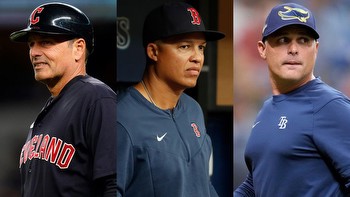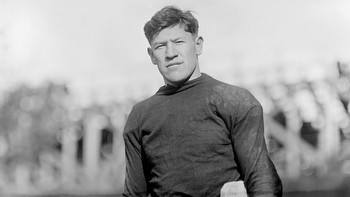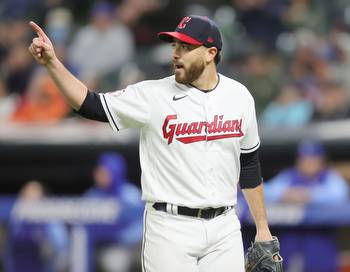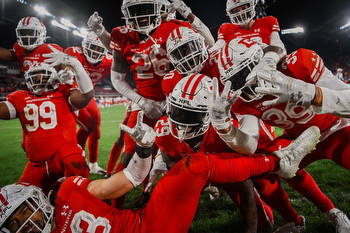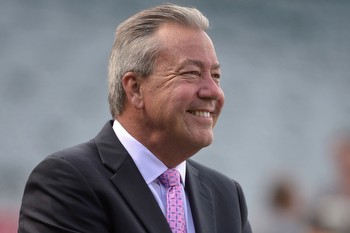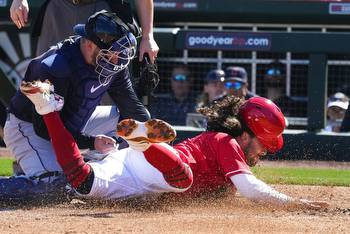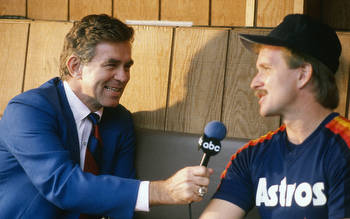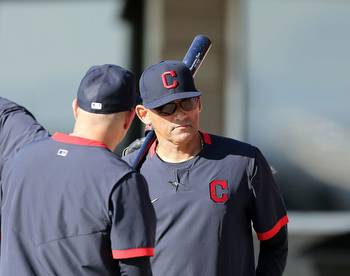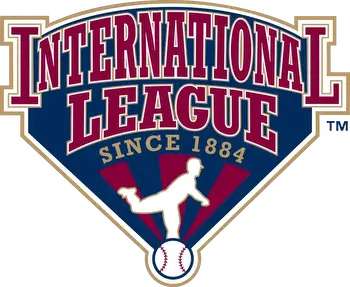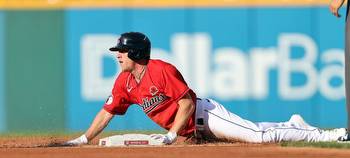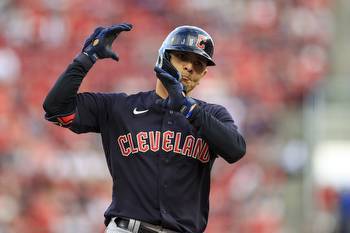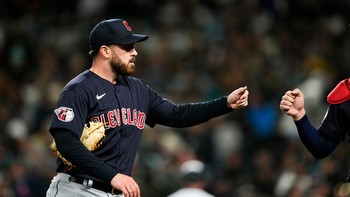A steady voice: RubberDucks announcer Jim Clark hits milestone in the booth in ’23 season

AKRON, Ohio – In the world of minor-league baseball, ballplayers travel up and down, teams swing through successful years and lean seasons, and records are occasionally set. But for three decades, Jim Clark has remained a steady voice.
Clark, in his 30th season of broadcasting professional baseball, achieved his milestone this summer, when he entered the booth to call an Akron RubberDucks game – his 3,500th overall.
And it all started in his basement when he was a boy.
Clark, who grew up in Canton, would play a board game, Big League Baseball, complete with spinner and pegs to move “players” around the diamond. Except for Clark, he’d have a game on the radio, too. Armed with his imagination, the game would come alive.
“I’d keep score. I have my book like I do every game. I had my tape recorder that recorded off the radio. When a (Cleveland) Indian would homer, scoreboard would explode. The fanfare, the horns would come out - I would tape that. In my game, when an Indian homered I’d hit the button and the scoreboard would go off. I love Cleveland and that (Municipal) stadium so much.”
Clark knew early on, like so many people who love a game but realize they won’t make it as a player, that he wanted baseball to remain a part of his life. He loved all sports, but baseball was special.
“You grow up listening to Jimmy Dudley, Bob Neal and Joe Tait. I remember in the eighth grade, career day in junior high. I went to WAKR and met with Jerry Healey, morning guy. He also did Akron basketball and football. … I said, ‘Mr. Healey, I would like someday to work here at WAKR.’”
Clark received a positive if not boilerplate answer: Keep on the path you’re on, kid.
Years went by and Clark attended the then WIXY School of Broadcasting Technique for a three-month course. He loved it but was met with the usual resistance when he applied for a job.
“The first words were, ‘What’s your experience?’ Well, I don’t have any because I don’t have a job yet.”
He banged around looking for a radio gig. By this point he was out of high school two years and enrolled at the University of Akron. He was covering Akron football and basketball. He landed a job at WAKR and found himself at a promotional event that brought in Joe Namath.
One of the station’s news guys, Carl Dickens, approached Clark at the event. The conversation that ensued shows how atypical Clark’s next step in the business was.
“He says, ‘What are you doing after this?’ " Clark remembered.
" ‘I’m going home,’ " Clark replied.
Dickens: “Come down to the station.”
Clark headed to WAKR, and Dickens told him, “Read some copy, look up at me.”
Then Clark heard words he never thought he would hear.
“You’re going on TV.”
Turns out Dickens wanted off the 6 p.m. sportscast, and he knew Clark was hungry.
“Can you write copy?” he asked Clark.
“I wrote some stuff down. He goes, ‘You start in two weeks.’ I’m still in school; I’m student-teaching next semester.”
Dickens replied: “What time do you get done? Be at the station at 3:30. You go on the air at 6 and 11.”
And that’s how radio man wannabe Jim Clark wound up on television as the Channel 23, ABC-affiliate sports guy while he was still in college. Here was a kid going up against the likes of Gib Shanley on WEWS.
“Something was telling me I should not be doing this,” Clark said.
He was on three months.
“No one said a word to me,” said Clark, who had no television training. “I just kept doing it. I never felt comfortable with it.”
But it was a launching pad, baseball was still in his blood and announcing remained a dream. He sent out tapes. Tait listened to his work and encouraged him: “Keep doing this. Somebody is going to hire you one of these days. You’re fine, don’t worry about it.”
Needing to pay the bills, he took a job as sports information director at Walsh University in North Canton. Then, several years in, he learned Canton was in line for a minor-league team.
He told himself: “I’ve got to see where this goes.”
A minor-league team from Vermont was moving to Canton. Clark didn’t get the gig, losing out to Scott Davidson, who lasted a year. But he was able to join Mike Snyder in the booth in 1990. (Side note: The announcer who called games for the Vermont team before they moved was none other than Jim Donovan.)
Minor-league baseball has always been its own thing. It’s serious for guys teetering between being called up to the Majors or being sent down or, worse, a reminder that some will have to give up their dream. But for fans, it’s part game, part circus, with a front-row seat to the zaniness across small-town USA.
Clark called the games. And he took in the occasional zaniness.
Once, he said, a girl came out and sang the National Anthem. Everyone stopped and listened. She finished, and players started throwing the ball around the infield. Then she started singing the second verse.
“Everybody stops. I stopped,” Clark said. “I still see Daren Epley, our first baseman, take the ball and start to throw – and she starts verse three. There are four verses to the National Anthem, and she sang all four. You would only see this in minor-league baseball.”
Another time, the team played at Williamsport, Pennsylvania, on the Fourth of July. Fireworks were scheduled to go off at a certain time, per city ordinance, Clark said.
“It was bottom of the eighth, and we were ahead,” he said. “They had guys on base. They stopped the game for the fireworks.”
You know where Clark’s story is headed. Pitching change. Two pitches later, three-run home run, game over. Manager went nuts.
Only in minor-league baseball.
But the game is also about the players, and Clark got see some good ones - David Bell, Manny Ramirez and Brian Giles all graced the field with Clark in the booth.
He remembers Ramirez’ skills on the field and aloof qualities off of it. Ramirez didn’t cash checks regularly, reportedly using his glove compartment to store them along with traffic tickets. But he was serious about the game and never took extra batting practice in front of anyone, always alone.
Clark was there when the Akron Aeros won their first title in 2003. Akron would go on to win championships in 2005, 2009, 2012, 2016 and 2021.
He used to travel a lot, taking his Walsh work on the road.
“I would sit here and type a golf story – ‘Three and two the count!’ - and I’d be typing a story for the web,” he said.
He left Walsh in 2015 after 33 years and found time to write a book, “Rally ‘Round Cleveland: The Story of the 1974 Franchise-Saving Cleveland Indians.” But radio – his original dream – has never wavered.
Clark works for the team, who cut whatever deal they want with any station. He also broadcasts football and basketball games for Akron schools via the internet. He has limited his travel in recent years. And he has a secret to his longevity.
“I don’t scream,” he said.
He splits time in the booth with Marco LaNave, who wears multiple hats for the RubberDucks. Clark keeps tabs on his voice and doesn’t rush or spit words out.
The milestone came up on him. Before this season, he was looking for a note he had written on his tally of games. It turned up, and he did the calculations: The Harrisburg-Akron game on July 7 would be the day he hit 3,500. The funny thing is, about a month later, Clark could not recall immediately whether the Ducks won.
Akron lost 3-2 in 10 innings before 4,529 fans.
The Ducks are hovering just under .500 for the season, but it’s been a year of milestones. Rouglas Odor became the winningest manager in franchise history, and the team topped 2,500 victories since landing in Ohio in 1989.
What’s left for the 68-year-old Clark: He thinks hitting the 4,000-game mark – which would take the equivalent of about three full seasons – is within reach. And before he turns off the microphone, he wants to call a big-league game.
“I become a grandfather for the first time in November, but that won’t stop me,” he said. And he thinks of what he told RubberDucks owner Ken Babby.
“I told Ken, ‘If you ever think I’m slipping, you tell me.’ Though I think I’ll know first. If I keep my voice as long as I can, it’s a great job.”
Sports betting is now legal in Ohio. Bets can be placed at sportsbooks, including DraftKings Ohio Sportsbook, BetMGM Ohio, Fan Duel Ohio, Barstool Ohio, Caesars Ohio, Bet365, PointsBet and Tipico.
I am on cleveland.com’s life and culture team and cover food, beer, wine and sports-related topics. For my recent stories, here’s a directory on cleveland.com. Bill Wills of WTAM-1100 and I talk food and drink usually at 8:20 a.m. Thursdays. Twitter: @mbona30. My latest book, co-authored with Dan Murphy, is “Joe Thomas: Not Your Average Joe” by Gray & Co.
Like cool local food + drinks photos and videos? Follow @DineDrinkCLE on Instagram.

